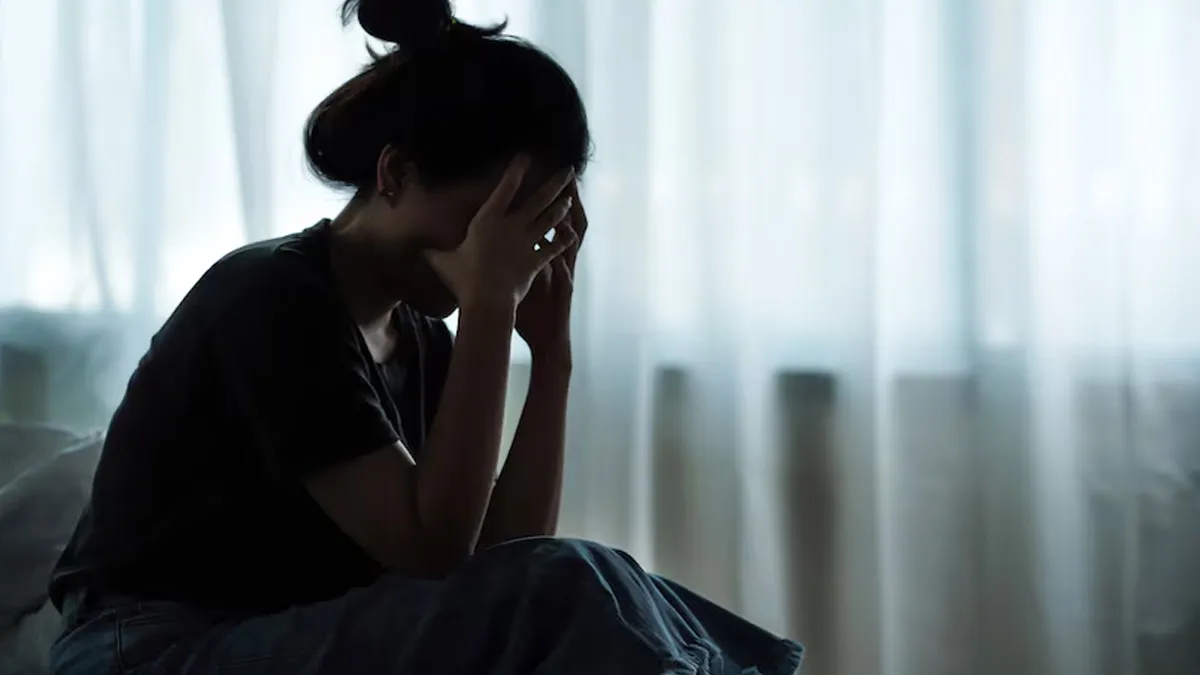
Experiencing a miscarriage can be one of the most emotionally and physically challenging events a person can endure. The loss of a pregnancy often triggers a flood of emotions, including sadness, grief, anger, guilt, and even confusion. Although physical recovery from a miscarriage may vary, emotional healing can take longer. Coping with mental health after a miscarriage requires patience, self-compassion, and support.
Table of Content:-
CHECK YOUR
MENTAL HEALTH

To understand how one can cope up with mental health after a miscarriage, OnlyMyHealth team interacted with Dr Gurpreet Batra, Senior Consultant – Gynaecologist and Infertility Expert, Cloudnine Group of Hospitals, Ludhiana.
1. Acknowledge Your Emotions
It is essential to acknowledge and validate your emotions following a miscarriage. Every individual experiences grief differently, and there is no right or wrong way to feel. Some might feel deep sadness, others might experience anger, and some may even feel a sense of relief or numbness. All of these feelings are valid. Grief is a personal journey, and it’s okay to have complex emotions. Allowing yourself to feel and express these emotions rather than suppressing them can help in the healing process.
Dr Batra explains, “Experiencing a miscarriage can be one of the most emotionally and physically challenging events a person can go through. The loss of a pregnancy often triggers a flood of emotions, including sadness, grief, anger, guilt, and even confusion. Although the physical recovery from a miscarriage may vary, emotional healing can take longer.”
Also read: Can Miscarriage Happen Due To Poor-Quality Sperm Of A Man? Expert Explains

2. Understand Grief is Unique
Grieving after a miscarriage can look different for everyone. Some women may find comfort in talking about their loss, while others may prefer solitude. Similarly, the grief process may be short for some, while for others, it might take months or even longer. The key to coping with the emotional aftermath of a miscarriage is not to rush the healing process. Dr Batra advised to be patient with yourself and understand that there is no timeline for grief.
3. Communicate with Loved Ones
After a miscarriage, individuals often feel isolated or misunderstood. “Talking to your partner, family, or close friends about what you are going through is crucial. Open and honest communication can provide emotional relief and help others understand your needs,” Dr Batra said adding, “You may need space, or you may need comfort and reassurance. Let your loved ones know how they can support you during this time.”
However, it is also normal to find it difficult to talk about your loss or to feel that others don’t know what to say. If this happens, let people know that while you appreciate their support, you may not always feel up to discussing the miscarriage. Sharing at your own pace is vital.
4. Seek Professional Help

If the emotional toll of a miscarriage feels overwhelming or persists for a prolonged period, seeking help from a therapist or counsellor who specialises in grief can be incredibly helpful. According to Dr Batra, “Therapy can provide a safe space to express your emotions and navigate the complex feelings that arise after a loss.” A study by the Journal of Lifelong Learning in Psychiatry states that Cognitive-behavioural Therapy (CBT) and grief counselling can offer coping mechanisms and strategies to address anxiety, depression, or guilt.
Additionally, a healthcare provider can ensure that you are recovering physically and provide advice on managing your mental health post-miscarriage.
Also read: Mental Health Matters: Key Signs You’ve Healed And When It’s Time To Stop Therapy
5. Take Care of Your Body
Your physical health is intricately connected to your emotional well-being. Dr Batara says, “Taking care of your body after a miscarriage can help reduce stress and improve your overall mood.” This includes:
Rest and recovery: Give your body the time it needs to heal physically after a miscarriage. This might include getting plenty of sleep and avoiding physical strain.
Eat well: Maintaining a balanced diet helps boost your energy levels and improve your mental health. Consider incorporating foods rich in vitamins, minerals, and omega-3 fatty acids, which help regulate mood.
Exercise: Once cleared by a doctor, light exercises like walking or yoga can be beneficial for reducing anxiety and promoting the release of endorphins, which are natural mood boosters.
6. Be Mindful of Future Family Planning
When you are ready, consider discussing your feelings and plans about future pregnancies with your partner or a counsellor. Dr Batra emphasises, “It’s essential to take time to heal both emotionally and physically before trying again. For some, the desire to try again soon after a miscarriage is strong, while others might need more time. Both reactions are normal, and it’s important to make a decision that feels right for you.”
If you decide to try for another pregnancy, it’s okay to feel apprehensive or uncertain. These feelings can be managed with the right support and preparation.
Conclusion
Coping with the mental health aftermath of a miscarriage is never easy. The emotional pain can be profound and long-lasting. However, with the right support, self-care, and understanding, you can begin to heal and regain your emotional balance. Dr Batra advises, “Coping with mental health after a miscarriage requires patience, self-compassion, and support.” Remember, there’s no right way to grieve, and seeking professional support can be a key part of the journey towards healing. Taking care of yourself physically, emotionally, and mentally is vital in the road to recovery after a miscarriage.
Also watch this video
How we keep this article up to date:
We work with experts and keep a close eye on the latest in health and wellness. Whenever there is a new research or helpful information, we update our articles with accurate and useful advice.
Current Version
